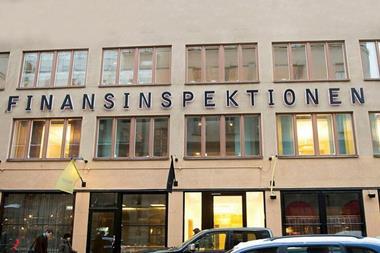When describing the current state of
Germany’s property market, it’s tempting to think of the famous “sick man of Europe” quote from Otto von Bismarck, the Prussian statesman who created modern Germany.
The fact is that while property markets in other European countries are buoyant or, in the case of the UK and Ireland, booming, Germany’s market finds itself in the doldrums.
In east Germany, there is too much overcapacity
following an ill-conceived building boom in the early 1990s. In richer west Germany, asset prices have dropped considerably following the economic
stagnation of 2001-2003.
Though the German economy is recovering, new building takes place on a small scale as domestic investment and demand remain weak. The market
is also seriously being held back by corporate
Germany’s unwillingness to divest its massive property holdings due to a tax penalty.
The diagnosis for the German property market is grim, but the same cannot be said of the long-term prognosis. The financial community and public authorities are hard at work to develop what could be the cure for its illness – Real Estate Investment Trusts (REITs). And if they work diligently, the healing could begin as early as January 2006 when REITs would emerge.
Why is this scenario believable? Because, according to property experts, REITs would prompt companies to float their massive property holdings and thereby invigorate a market in dire need of such an impetus.
Many German companies would be eager to sell their property were it not for a stinging tax rate of 40%. To remedy this, the financial community lobby IFD last month proposed a German REIT where
companies would pay only half of the 40% rate if
they used their property to create a new investment vehicle.
Assuming that the companies make use of the REIT, the effect on Germany’s property market would be dramatic. According to IFD, these holdings alone could provide the country’s REIT market with €60bn in volume five years from now.
Heiko Beck, chief counsel at German real estate fund provider DekaBank and a member of IFD’s working group on REITs also thinks that “there is an enormous potential for REIT creation from the public sector, which, given the current fiscal situation, doesn’t have a long-term interest in owning and managing real estate. A final source for REITs in my view are German fund companies which specialise in property investment.”
Between these sources and institutional investors looking for higher returns than those from German real estate funds, IFD estimates that Germany’s REIT market could reach €127bn by 2010. If true, this which would make Germany Europe’s undisputed leader in the asset class.
IFD’s working group includes not only representatives from fund companies like DekaBank but also from investment banks active in Germany such as Morgan Stanley. According to its proposed German REIT, these banks would be free to advise and
execute the creation of the vehicles by, say, companies or the public sector.
Considering that its members stand to benefit enormously, German fund industry association BVI has been anxiously awaiting the arrival of REITs in Germany. Several BVI members, including DekaBank, Deutsche’s Bank DB Real Estate and Commerzbank’s CGI have already signalled that they will use some of the holdings in their real estate funds to create new REITs.
Surprisingly, though, BVI is not making any predictions about the market potential for REITs in Germany. Rüdiger Päsler, managing director at BVI in Frankfurt, simply says: “We have no reason to believe that the IFD’s estimate is wrong.”
Päsler stresses that in any case, the other major benefits of REITs are that they could help resolve the extreme overcapacity existing in Germany’s property market as well as promote new development.
“Unlike traditional German open-ended real estate funds, REITs have a risk profile like shares. Their existence will cause property to change hands a lot more quickly,” Päsler says.
“REITs should also help boost real estate development, particularly in so-called ‘1B’ areas, which are generally smaller cities like Salzgitter (near Hanover),” he adds.
Investment banks, whether Morgan Stanley, Goldman Sachs or domestic players like Deutsche and Dresdner Bank, are equally jubliant at the prospect of German REITs, and it’s easy to see why. According to Crédit Suisse Asset Management (CSAM), the new investment vehicle could spawn between 20 to 30 new intital public offerings within the first two to three years of its existence. Like Beck at DekaBank, CSAM sees both companies and the public sector as major sources of REITs.
It seems then that REITs could be the answer to what ails Germany’s property market and be a boon to its financial centre generally. However, it is by no means a foregone conclusion that REITs will arrive in Germany in 2006 if ever at all.
The reason is that cash-starved public authorities in Germany, especially on the local level, are not keen on losing any potential tax revenue. Agreeing a 20% tax rate for the creation of REITs from property would, for example, be a huge concession on their part.
Barbara Hendricks, deputy German finance minister, summed up the authorities’ sentiment by saying recently that while Berlin is open to REITs, their launch “depends on settling crucial tax issues.”
Federal, state and local tax authorities have formed a working group to settle the issues. But Hendricks warns there is no guarantee that “a positive result” will be reached so REITs can emerge from January 2006.
The IFD has sought to reassure public authorities by calculating that up to €8.2bn in additional revenue could come from REITs due in large part to their invigorating effect on German real estate investment.
Critics charge that the tax debate is not helping the cause of German REITs. They also warn that if no agreement is reached, this would harm Germany’s competitiveness as a financial centre. Apart from Germany, the UK and Italy plan to introduce REITs from 2006.
One of these critics is Oliver Mihm, chief executive of Investors Marketing, a Frankfurt-based financial consulting firm. Mihm says that even the 20% tax rate might discourage some creation of REITs, “because this contradicts the principle of REITs, which is that there should be no taxation at the corporate level.”
Mihm also thinks the IFD’s prediction that German REITs will become a €127bn market by 2010 to be grossly exaggerated. While allowing that there is great potential owing to return-hungry institutional investors, Mihm stresses that the asset class will need time to gain acceptance.
“My impression is that the IFD’s estimates pertains to what can be done on the supply side, that is the value of the property that could be used for REITs. REITs, just like any other share, will only succeed if institutional investors are convinced that there is substance behind them,” Mihm says.
Mihm’s prediction is that by 2010 REIT volume will hit just €15bn, of which 80% will be driven by institutional investors, including pension funds and insurers as well as real estate funds. Considering that it took decades for German open-ended real estate funds to reach a current volume of €80bn, Mihm’s prediction is probably a bit closer to the mark than IFD’s.
But regardless of which prediction turns out to be true, any significant volume generated by REITs will ensure its success in Germany and, in turn, help the overall property market toward a full recovery.












